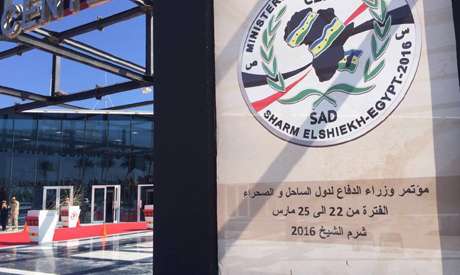The counterterrorism center for the Community of Sahel-Saharan States (CEN-SAD) in Cairo, Egypt, has been officially opened on Thursday.
Here are the most significant objectives of the CEN-SAD center:
• Strengthening cooperation and coordination among the states of the Sahel-Saharan Community to confront terrorist threats and related crimes.
• Facilitating the exchange of security and intelligence information between member states on terrorist risks and threats in order to help develop an integrated vision to combat terrorism in the Sahel-Saharan region.
• Supporting efforts aimed at training, rehabilitating and strengthening military, police, civil and intelligence capabilities in the assembly countries in the field of combating terrorism, extremism and other related crimes, in order to enhance the capabilities of member states to comprehensively address the phenomenon of terrorism.
• Developing joint strategies to combat terrorism and related crimes and support the exchange of national, regional and international experiences among the countries of the assembly.
• Providing the necessary frameworks and mechanisms to promote dialogue between the countries of the assembly or with regional and international organizations working in the field of combating terrorism.
• Creating the appropriate conditions for active and integrated security and military cooperation between member states.
Moreover, the SEN-SAD Center undertakes the following tasks:
• Develop technical expertise from CEN-SAD member countries when setting up infrastructure to combat terrorism and transnational organized crime, and in priority areas such as border security, terrorist financing, cybersecurity, social networks, countering extremism conducive to terrorism, and the detection and neutralization of explosives arms trafficking, infiltration, combating illegal immigration, human trafficking...etc.
• identify common areas of cooperation and enhancing means of capacity building efforts for member countries;
• Carry out studies and analyzes, including organizing workshops and seminars, on assessing all aspects of terrorist threats and transnational organized crime in the countries of the assembly and identifying common areas of cooperation and ways to enhance capacity-building efforts of Member States.
• Create a database on the best strategies and tactics to address the multiple security risks faced by the CEN-SAD countries.
• Strengthening the capabilities of the CEN-SAD countries to combat the financing of terrorism and facilitating their exchange with regard to the financial data of terrorist groups and money laundering.
• Assisting Member States in implementing international and regional recommendations in this regard, and working to enhance countries' ability to dry up the sources of terrorist financing.
• Working to implement joint operational training programs in the areas of combating terrorism and related crimes, transnational organized crime (drug and arms trafficking and other crimes deemed to affect the security and safety of Member States), computer crimes (cyber crimes), and border, port and airport security, and so on.
• Develop mechanisms and programs for cooperation with similar regional and international institutions and organizations.

Furthermore, the areas of cooperation may include the following measures:













